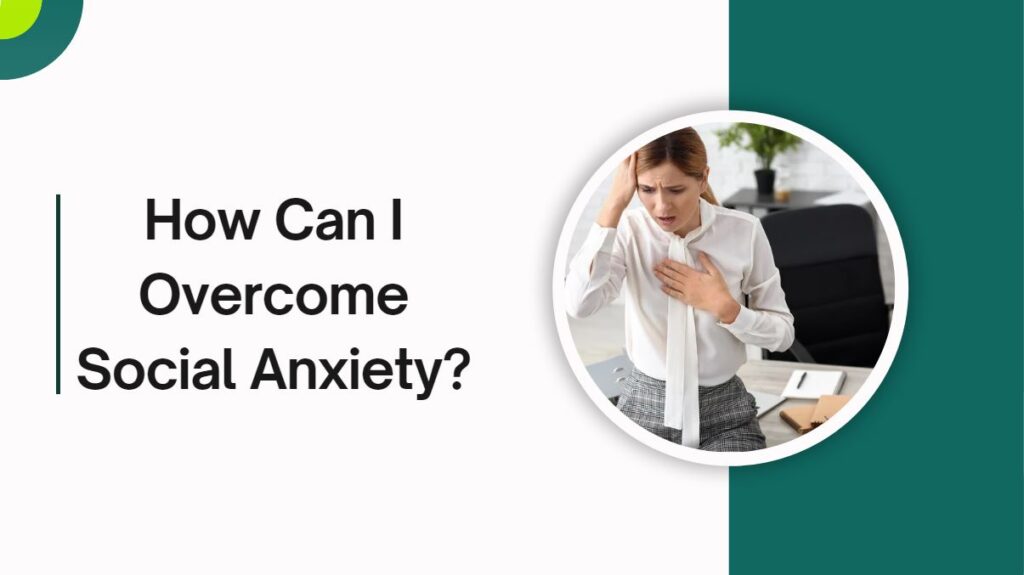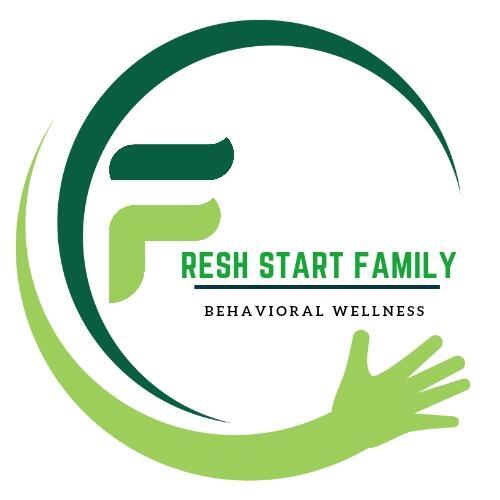Social anxiety can be an overwhelming and isolating experience. Whether it’s avoiding social gatherings, fearing judgment, or worrying about embarrassing yourself in public, the symptoms of social anxiety can significantly affect your daily life. This guide will help you understand what social anxiety is, its symptoms, how to identify it, and practical steps to overcome it. Let’s break free from the fear together and take control of our social lives.
What is Social Anxiety?

Social anxiety is more than feeling nervous before a big event or meeting new people. It is a persistent fear of being judged or negatively evaluated by others in social or performance situations. Unlike typical shyness, social anxiety disorder (SAD) can significantly impact your life, affecting relationships, career opportunities, and overall well-being.
While occasional anxiety in social situations is normal, individuals with social anxiety experience overwhelming fear or distress that often leads to avoidance of social events. It’s not just about shyness; it’s about fearing humiliation, rejection, or embarrassment in every social interaction.
Common Social Anxiety Symptoms

Recognizing the symptoms of social anxiety is the first step toward addressing it. These symptoms can be physical, emotional, and behavioral.
Physical Symptoms:
- Rapid heart rate, shaking, or sweating in social settings.
- Dry mouth, nausea, or dizziness during social interactions.
- Blushing or feeling hot in situations where others are watching.
- Muscle tension, especially in the chest or neck, as you prepare for social situations.
Emotional and Psychological Symptoms:
- Constant fear of being negatively judged, criticized, or humiliated by others.
- Overthinking social interactions or worrying excessively about how you’ll be perceived.
- Low self-esteem and feelings of inadequacy.
- The urge to avoid social situations to prevent perceived embarrassment.
Behavioral Symptoms:
- Difficulty speaking in public, making eye contact, or even initiating conversations.
- Nervous habits such as fidgeting, avoiding eye contact, or talking too quietly.
- Negative self-talk: “I’m going to mess up,” or “Everyone will laugh at me.”
Who Is Affected by Social Anxiety?

Social anxiety affects people across all demographics, but it is more prevalent in certain groups. It is estimated that approximately 15 million adults in the United States alone are affected by social anxiety disorder.
- Age: Social anxiety often begins in childhood or adolescence, typically between the ages of 13 and 20. Early experiences of bullying, criticism, or embarrassment can contribute to the development of social anxiety.
- Gender: While both men and women can be affected, social anxiety is often more pronounced in women due to societal expectations around appearance and social behavior.
- Cultural Factors: Cultural differences play a significant role in how social anxiety is expressed. For example, individuals from collectivist cultures may feel heightened anxiety about conforming to group norms, leading to heightened social fears.
Are There Various Forms of Social Anxiety?

Ever felt that knot in your stomach before a social event, worried about what others might think of you? You’re not alone. Social anxiety ranges from mild unease to intense fear, affecting how we interact with others. Let’s explore the different levels of social anxiety—Mild, Moderate, and Extreme—and how they shape your experiences, so you can better manage them.
- Mild Social Anxiety: Mild social anxiety is common and usually occurs before events like presentations or meeting new people. It may involve worrying about saying something awkward or feeling a bit nervous. While it may make you want to avoid certain situations, it rarely stops you from engaging. You can attend parties or hang out with friends, though you might prefer smaller groups. Physical symptoms like sweating or dry mouth are usually mild and don’t interfere too much with daily life.
- Moderate Social Anxiety: Moderate social anxiety is more noticeable. It may lead you to avoid larger social events or situations where you feel judged. You might experience physical symptoms like a racing heart or trembling. Social interactions can feel draining, and while you manage to participate, you often feel disconnected and eager to retreat. The fear of saying the wrong thing or being judged becomes more intense, making everyday social situations harder to handle.
- Extreme Social Anxiety: Extreme social anxiety, or Social Anxiety Disorder (SAD), involves overwhelming fear of judgment or humiliation in almost any social situation. This anxiety may prevent you from leaving your house or interacting with others. Panic attacks, shaking, and shortness of breath can occur at the thought of socializing. Simple tasks like ordering food or chatting with others feel impossible, leading to isolation and distress in daily life.
How Does Social Anxiety Disorder Differ from Simply Being Shy?

Many people confuse social anxiety with shyness, but they are distinctly different. Shyness is a personality trait, and while shy people may avoid social situations, they usually do not experience the intense fear and physical symptoms associated with social anxiety disorder.
Key Differences:
- Shyness: Involves mild discomfort in new social situations but typically doesn’t interfere with daily life. Shy people may feel anxious but can manage their feelings and participate in social activities.
- Social Anxiety Disorder: Involves overwhelming fear and avoidance that disrupts daily life. People with SAD may isolate themselves entirely or face intense distress during any social interaction.
The difference lies in the intensity and impact. Social anxiety is persistent and can make even routine social activities feel overwhelming.
The Causes of Social Anxiety

Understanding the causes of social anxiety is crucial to overcoming it. While the exact cause is not always clear, several factors may contribute:
- Genetic Factors: There is evidence to suggest that social anxiety disorder runs in families. If a close family member has the condition, you may be at higher risk of developing it yourself.
- Environmental Factors: Childhood experiences, such as bullying, criticism, or a history of trauma, can lead to the development of social anxiety. Overly critical parents or peers can also play a significant role in fostering fears of judgment.
- Biological Factors: Neurotransmitters, such as serotonin, may play a role in the development of social anxiety. Imbalances in these chemicals can affect mood and stress responses.
- Cognitive Factors: Cognitive biases, such as overestimating the threat of social situations or expecting rejection, can perpetuate social anxiety. These distorted thought patterns reinforce fears and anxieties.
Diagnosing Social Anxiety
To determine whether you have social anxiety disorder, you may need to consult a healthcare professional. While some may self-diagnose, a mental health professional will use tools such as the Social Phobia Inventory (SPIN) or other diagnostic criteria to assess your symptoms.
Social anxiety disorder is diagnosed when the symptoms interfere significantly with your life, such as avoiding work meetings or isolating yourself from friends and family.
How Can I Overcome Social Anxiety?

Overcoming social anxiety is a process, but it is entirely possible. The following strategies a mental health professionals may recommend can help you break free from the fear:
1. Cognitive Behavioral Therapy (CBT)
CBT is one of the most effective treatments for social anxiety. It focuses on changing negative thought patterns and replacing them with healthier, more realistic ones. Exposure therapy, a CBT technique, involves gradually facing social situations to reduce fear over time.
2. Gradual Exposure
Exposure therapy helps you confront your fears step by step. Start with low-stress situations and gradually work your way up to more challenging social scenarios. This method builds confidence and reduces anxiety.
3. Mindfulness and Relaxation Techniques
Mindfulness exercises, such as deep breathing or progressive muscle relaxation, can help you stay calm in social situations. These techniques help you manage physical symptoms of anxiety and stay grounded.
4. Building Self-Esteem
Social anxiety often stems from low self-esteem. Engage in activities that promote self-compassion, set small achievable goals, and celebrate your successes. Positive affirmations can also help change your self-talk.
5. Medication
In some cases, medication can be helpful. Selective serotonin reuptake inhibitors (SSRIs) or benzodiazepines are commonly prescribed to manage symptoms. However, medication is typically used in conjunction with therapy for optimal results.
What Actions Can I Take If I Experience Social Anxiety?

If you experience social anxiety, you can take several actions to help manage it in the moment:
- Practice deep breathing or grounding exercises when you feel overwhelmed.
- Prepare for social events by having conversation starters or topics in mind.
- Set small, manageable goals: instead of avoiding an event, aim to attend for just 10 minutes.
- Focus on the present moment—don’t dwell on past mistakes or worry about the future.
- Reach out to a trusted friend or therapist for support if needed.
Common Mistakes to Avoid When Dealing with Social Anxiety
While managing social anxiety, it’s important to avoid certain pitfalls:
- Avoidance: Constantly avoiding social situations only reinforces the anxiety and makes it harder to face your fears.
- Perfectionism: Expecting perfection in social interactions can lead to frustration. Focus on progress, not perfection.
- Isolation: Isolating yourself worsens anxiety. Try to maintain social connections, even if it’s just small steps at first.
How Can I Support Someone Dealing with Social Anxiety?
Supporting someone with social anxiety can be challenging, but your understanding and encouragement can make a huge difference. By being patient, non-judgmental, and offering consistent support, you can help them navigate their anxiety and build confidence.
- Listen without judgment: Sometimes, simply being there to listen can make the person feel understood. Avoid offering immediate solutions unless they ask for advice, as sometimes they just need to express their feelings.
- Be patient and understanding: Recognize that overcoming social anxiety takes time and isn’t something that can be fixed overnight. Offering reassurance when they feel anxious can help them feel supported during difficult moments.
- Encourage gradual exposure: Gently encourage them to face their fears, starting with small, less intimidating social situations. Gradual exposure can help them build confidence and reduce anxiety over time.
- Respect their boundaries: While you can encourage social participation, respect their need for space when they feel overwhelmed. Pushing them too hard may increase anxiety rather than alleviate it.
- Offer resources and professional help: Suggesting therapy, self-help books, or online resources can help them understand their anxiety. Support their decision to seek professional help if they feel it would be beneficial.
When to Seek Professional Help

If your social anxiety is preventing you from living a fulfilling life or is significantly affecting your daily activities, it might be time to consider professional help. Therapy and other treatments can provide the support you need to overcome anxiety and regain control over your life.
- Difficulty functioning at work or school: If your anxiety prevents you from completing tasks or participating in important activities.
- Avoidance of social situations: When the fear of social interactions causes you to withdraw from essential events or relationships.
- Physical symptoms are overwhelming: If you experience frequent panic attacks or severe physical symptoms like shaking or sweating.
- Impact on relationships: When anxiety makes it hard to connect with family, friends, or colleagues.
- Self-help strategies aren’t enough: If managing anxiety on your own no longer provides relief, or if symptoms worsen over time.
Embracing the Path to Overcoming Social Anxiety
Understanding social anxiety and recognizing its symptoms is the first step toward overcoming the fear that holds you back. From mild discomfort to more severe forms of social anxiety, it’s important to remember that recovery is possible at every stage. While it may feel overwhelming at times, with the right strategies and support, you can regain control over your social experiences and live a fuller, more confident life. There is hope, and each small step forward is progress.
Taking the first step toward breaking free from social anxiety can feel daunting, but you don’t have to do it alone. Fresh Start Family Behavioral Wellness is here to help you on your journey to healing and growth. We understand that facing social anxiety can be tough, but with our years of experience, we are committed to providing the tools and support you need to manage your anxiety and reclaim control of your life. Whether you choose to visit our facility or contact us at 910-436-6495, we are ready to walk alongside you, providing a path to recovery and empowerment.

